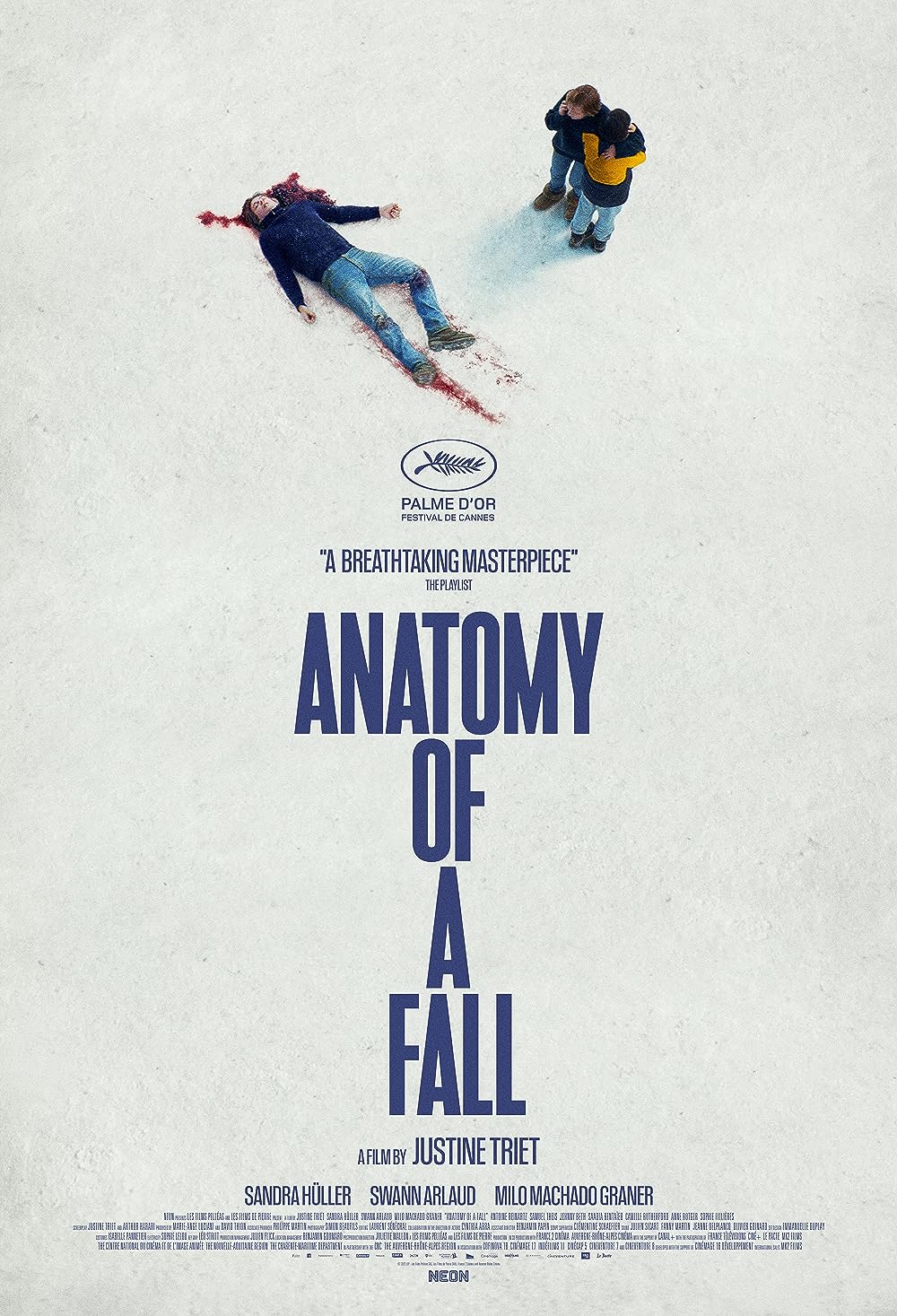Score: 5/5
Unwavering and razor-sharp, Anatomy of a Fall’s intricacies beg for a rewatch.
French filmmaker Justine Triet has surged into award season with her latest film Anatomy of a Fall, earning the Cannes Film Festival’s highest prize, the Palme D’Or. The film follows the trial of novelist Sandra Voyter (Sandra Hüller) after she is suspected of murdering her husband and fellow writer, Samuel (Samuel Theis), through a fall from their chalet’s third floor. Amid this, their blind son Daniel (Milo Machado-Graner) is faced with a moral conflict as the sole witness.
Upon initial viewing, Anatomy of a Fall holds its own as both a courtroom drama that never breaks tempo and one of the most visceral marriage dramas since Noah Baumbach’s Marriage Story. This is aided by the performances, notably Hüller’s who brings a realistic intensity that makes the viewer feel like a voyeur to the conflict at hand.
Triet’s script is a sharp unfurling of its characters and their relationships from several perspectives. In the first act, the incident is presented through the vague account of Sandra’s relationship with her husband. She stands by her innocence, but this alone is not presented as convincing enough to believe her, urging the audience to lean in further in hopes of uncovering more.
What we are later presented with is a continuous subversion of expectations. Further information is presented in audio recordings of fights, photographs and seemingly unrelated connections made by the prosecution to intentionally withhold information used to create an encompassing portrait of its characters.
The direction of technical aspects is used to continuously establish new perspectives. This is especially discernable in the way the camerawork changes to frame characters from new angles, as if to test viewers’ assumptions about who the characters are by presenting them from unfamiliar perspectives or distances.
Being able to rewatch films gives the opportunity to examine details scattered throughout their screenplays from a different light. Anatomy of a Fall is probably the best example of this practice within every film released last year.
After rewatching the first scene on another viewing, the film’s effectiveness in this regard is noticeable as we are presented with a new context of who these characters are. We know about the complicated dynamics of Sandra and Samuel’s marriage and their individual relationships with Daniel along with the aspects of the scene that are being questioned in court.
The rhythmic flow of the film’s events makes it natural to assume the trial is an examination of Samuel’s death and Sandra’s potential involvement, but Anatomy of a Fall moves intelligently to elicit entirely new questions that keep viewers guessing.
As the trial progresses, it becomes more apparent that the cards are stacked against Sandra. The case stretches further into ambiguity as it appears she is prosecuted for more than suspected murder.
Sandra garnered acclaim for her numerous novels, building a successful career of her own compared to her husband, who at the time of his death behaved as a stay-at-home parent. Her independent career success over her husband’s is seen as a weapon against him and the assumed dynamics of how their relationship must operate.
Samuel’s resentment for Sandra’s success is manipulated to place him in the role of an emasculated victim. With every new strategy to reframe Sandra as a malicious monster of a wife, we’re left wondering if the real crime she is being accused of is stepping out of line with unspoken standards of how she is to conduct herself as a woman in a marriage: standards that protect Samuel’s ego. He expected her to make him feel important in ways that he was not, simply because of his assumed right to a certain role.
And still, without missing a note, Anatomy of a Fall leaves quietly with as many questions as it arrives with. After dragging viewers through scrutiny of its characters and their relationships it provokes inquiry into what can even be considered trustworthy information.
The film places our own expectations under a microscope as much as it does its characters. Its twists are never climatic resolutions, but only further obstructions used to paint over the truth. When isolated moments in our lives are taken out of context and examined, could we appear guilty of something untrue?


